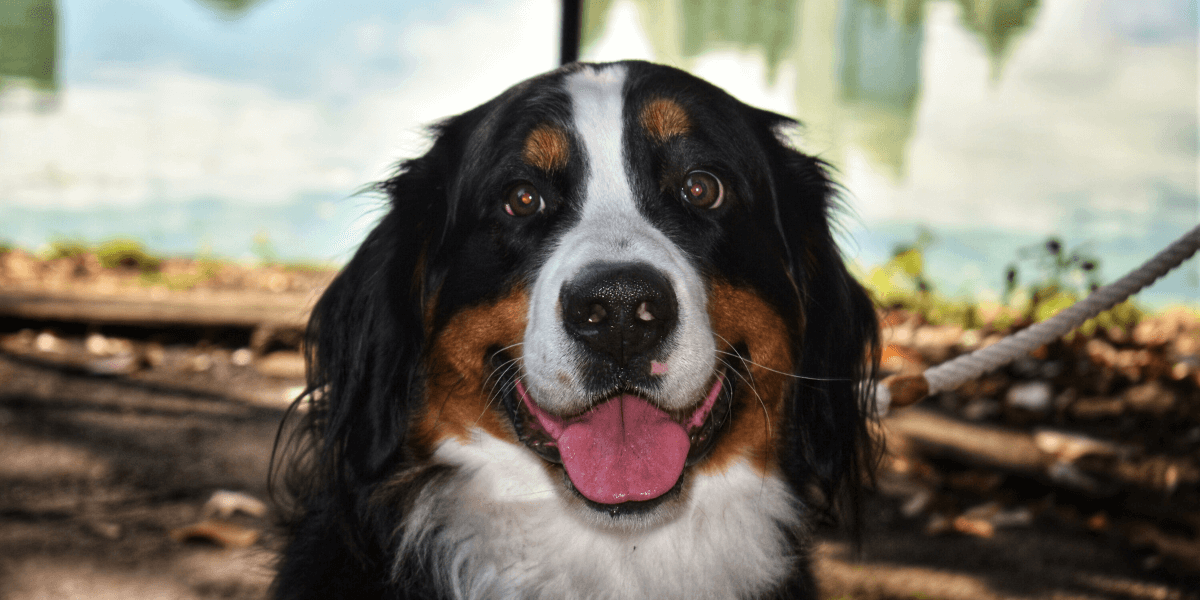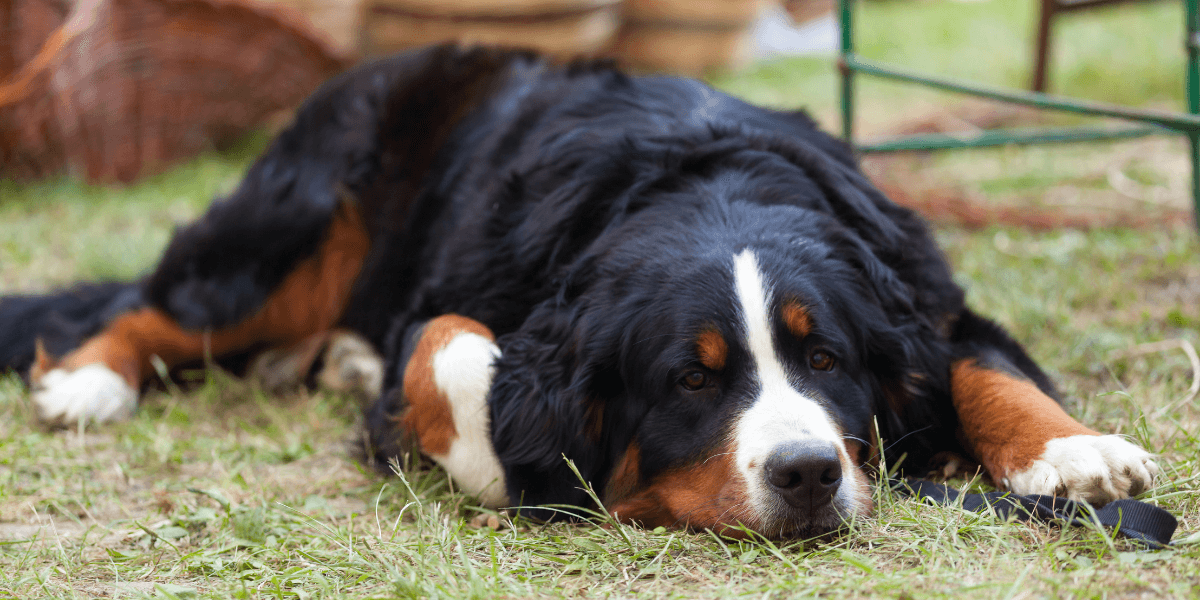Introduction
Discover essential tips on Bernese Mountain Dog health issues
- Owning a Bernese Mountain Dog? You might wonder about their specific health issues
- Bernese Mountain Dogs are friendly and stunning but have health vulnerabilities
- Here, we’ll cover Bernese Mountain Dog Health Issues they face and tips on prevention
1. Hip Dysplasia

It occurs when the hip joint doesn't develop properly, causing arthritis and pain.
Prevention and Treatment:
- Maintain a Healthy Weight: Prevent obesity to avoid worsening hip dysplasia
- Veterinary Care: Regular check-ups can detect hip dysplasia early
- Monitor Weight: Keeping your dog at a healthy weight reduces stress on the hips
- Avoid High-Impact Activities: Minimize running or jumping to protect the hips
- Physical Therapy: Some dogs benefit from tailored exercises and hydrotherapy
- Use Joint Supplements: Glucosamine and chondroitin can support joint health
2. Elbow Dysplasia

Bernese Mountain Dog health issues include elbow dysplasia, causing arthritis.
Prevention and Treatment:
- Balanced Diet: Ensure a diet rich in joint-supporting nutrients like glucosamine
- Controlled Exercise: Avoid high-impact activities that strain elbow joints
- Medical Intervention: Vets may suggest medications, physical therapy, or surgery
- Regular Check-Ups: Frequent veterinary visits help monitor the condition
- Use Orthopedic Beds: These beds provide extra support to relieve joint pressure
- Physical Therapy: Exercises designed for elbow health can improve mobility
3. Bloat (Gastric Dilatation-Volvulus)

Other Bernese Mountain Dog health issues include Bloat (gas-filled stomach).
Prevention and Treatment:
- Slow Feeding: Use a slow feeder bowl to prevent fast eating
- Smaller, Frequent Meals: Feed smaller meals multiple times a day
- Avoid Stressful Situations: Keep feeding times calm and avoid vigorous exercise
- Monitor Water Intake: Limit water intake around meal times to prevent bloating
- Emergency Plan: Have an emergency plan and know the quickest route to the vet
- Regular Check-Ups: Routine vet visits can help detect early signs of bloat
4. Cancer

Bernese Mountain Dog health issues include a higher risk of cancers.
Prevention and Treatment:
- Regular Check-Ups: Routine vet visits help in early tumor detection
- Monitor Changes: Regularly check for lumps, sores, or changes in behavior
- Early Detection: Early detection improves the effectiveness of treatments
- Genetic Testing: Consider genetic testing for predisposition to certain cancers
- Maintain a Healthy Diet: A balanced diet can support your dog’s immune system
- Supportive Care: Palliative care options can improve quality of life during treatment
Cancer in Bernese Mountain Dogs parallels health issues in Great Danes—awareness is key.
5. Heart Disease

Dilated cardiomyopathy (DCM) causes an enlarged heart and weak cardiac muscles.
Prevention and Treatment:
- Diet and Supplements: Ensure a balanced diet with heart-healthy nutrients
- Regular Vet Visits: Routine heart check-ups can detect early signs of DCM
- Medication: Vets may prescribe medications to manage the condition
- Monitor Breathing: Watch for signs of labored breathing or coughing
- Limit Salt Intake: A low-sodium diet can help reduce the heart's workload
- Regular Exercise: Moderate activity helps prevent Bernese Mountain Dog health issues
To learn more about managing heart disease in Bernese Mountain Dogs, read this comprehensive guide.
6. Allergies

Bernese Mountain Dogs can suffer from allergies, causing skin, ear, or GI issues.
Prevention and Treatment:
- Identify Allergens: Work with your vet to determine allergens
- Hypoallergenic Products: Special shampoos and conditioners can soothe skin
- Maintain a Clean Environment: Regularly clean your home to reduce allergens
- Manage Diet: A hypoallergenic diet can help control food allergies
- Monitor Symptoms: Keep track of symptoms to identify triggers
- Regular Vet Visits: Frequent check-ups help manage ongoing allergic reactions
- Use Antihistamines: Your vet may prescribe antihistamines to manage symptoms
- Consider Immunotherapy: Allergy shots may help reduce sensitivity over time
7. Progressive Retinal Atrophy (PRA)

Progressive Retinal Atrophy (PRA) is a genetic eye disorder causing gradual blindness by affecting the retina.
Prevention and Treatment:
- Genetic Testing: Breeders should test for PRA to prevent passing the gene
- Eye Exams: Regular veterinary eye exams can help detect PRA early
- Use Night Lights: Night lights can help dogs navigate in low-light
- Consistent Routine: Keep daily routines consistent to aid in navigation
- Use Tactile Markers: Use rugs or mats to mark steps and obstacles
- Training: Teach commands to help your dog navigate safely
Learn how health issues like PRA in Bernese Mountain Dogs compare to common conditions in German Shepherds.
FAQs
1. What is the best diet for a Bernese Mountain Dog with hip dysplasia?
- A balanced diet with glucosamine and chondroitin is recommended as best diet
2. How to prevent bloat in Bernese Mountain Dogs?
- To avoid health-threatening issues, slow feeder bowl and feed smaller, frequent meals
3. Early signs of cancer in Bernese Mountain Dogs?
- Watch for unexplained weight loss, lumps, or appetite changes
4. How often should I take my Bernese Mountain Dog for a vet check-up?
- Every six months for early health issue detection
5. Can allergies in Bernese Mountain Dogs be cured?
- Allergies in Bernese Mountain Dogs can’t be cured but are manageable with diet and meds.
6. Is PRA (Progressive Retinal Atrophy) painful for dogs?
- (PRA) is not painful for dogs. However, it causes gradual vision loss
7. Are Bernese Mountain Dogs prone to heart disease?
- Yes, they have a higher risk of dilated cardiomyopathy (DCM)
Conclusion
- Caring for a Bernese Mountain Dog requires vigilance and preventive health care
- Regular check-ups and a tailored diet keep Bernese Mountain Dogs healthy
- Regular grooming is essential to manage their thick coat and reduce shedding
- Share this with other Bernese Mountain Dog owners and leave comments or questions!




